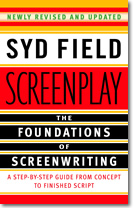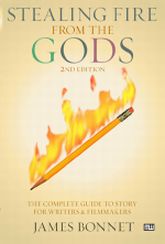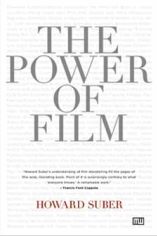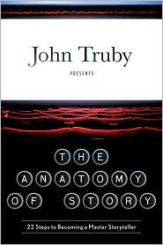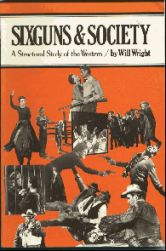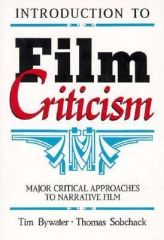Syllabus
Fall, 2017

James R. Elkins
The instructor for Lawyers and Film is James R. Elkins. My office is Rm. 110. My secretary, Karen Feather, is located in Rm. 117. The best way to reach me is by email.
The course is based on the premise that lawyer films can be put to use in your education as a lawyer. The questions we pursue in the course can be summarize as follows:
What can we learn about ourselves as lawyers from watching lawyer films?
If we are to learn something about ourselves as lawyers from films, what elements of the films—story, drama, plot, character portrayal—do we find, in a particular film, worth pursuing ?
What do the films tell us about the fictions we live as lawyers, about the personal mythology of lawyering that each of us construct for ourselves?
How are the ideals associated with a life in law portrayed (and questioned) in lawyer films?
What critical perspectives on law, lawyers, and the legal profession do we find reflected in lawyer films?
"There is a long history of law in film, one worthy of serious study."
--Rennard Strickland, "The Hollywood Mouthpiece: An Illustrated Journey Through the Courtrooms and Back-Alleys of Screen Justice," in David L. Gunn (ed.), The Lawyer and Popular Culture: Proceedings of a Conference 49-59, 53 (Littleton, Colorado: Fred B. Rothman & Co., 1993)]
Lawyers and legal issues have never been more prominent in popular culture than they are today. With this prominence has come a growing recognition on the part of law teachers and legal scholars that popular culture deserves attention and scholarly study; there is a growing body of legal scholarship on lawyers and law in film.
The primary texts for the course will be the films we watch each week. The films tentatively scheduled for class screening are:
"Adam's Rib"
"Anatomy of a Murder"
"To Kill a Mockingbird"
"The Verdict"
"Class Action"
"The Sweet Hereafter"
"Michael Clayton"
"The Castle"
"The Last Wave"
For further reading on lawyer films, see James R. Elkins, "Popular Culture, Legal Films, and Legal Film Critics," 40 Loy. L.A. L. Rev. 745 (2007) [on-line text]
For an explanation of how the films for the course were chosen, the rationale for the selection, and strategies for reading and understanding the films screened for the course, see James R. Elkins, Reading/Teaching Lawyer Films, 28 Vt. L. Rev. 813 (2004) [online text] [For a scaled-down version of the Vermont Law Review essay, see "Comment lire les films juridiques," 35 (1) Les Cahiers de l’APLIUT 8 (2006)] [on-line text] [on-line text] The Vermont Law Review article provides the substance for a substantial part of the course website.
These essays provide commentary on why I think lawyer films have a place in your legal education and I outline strategies for learning to read lawyer films. Copies of both the Vermont Law Review and Loyola of Los Angeles Law Review will be distributed at our first class meeting.
For supplemental reading for the course, I highly recommend film books by Robert McKee and Christopher Vogler.:
Robert McKee, Story: Substance, Structure, Style, and the Principles of Screenwriting (ReganBooks, 1997)
Robert McKee, Story: Substance, Structure, Style, and the Principles of Screenwriting (ReganBooks, 1997)
[Robert Mckee-Wikipedia]
Christopher Vogler's The Writer's Journey: Mythic Structure for Writers (Michael Wiese Productions, 3rd ed., 2007).
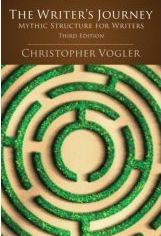
Christopher Vogler, The Writer’s Journey: Mythic Structure for Writers (Michael Wiese Productions, 3rd ed., 2007)
Additional books you might consider include:
Syd Field, Screenplay: The Foundations of Screenwriting (New York: Delta Book, rev. ed., 2005)
James Bonnet, Stealing Fire From the Gods (Michael Wiese Productions, 2nd ed. 2006)
Howard Suber, The Power of Film (Michael Weise Productions, 2006)
John Truby, The Anatomy of Story: 22 Steps to Becoming a Master Storyteller (Faber and Faber, 2007)
Will Wright, Sixguns & Society: A Structural Study of the Western (University of California Press, 1975)
If you find the idea of considering a film a "text," and you want a more basic academic text, you might consider Tim Bywater & Thomas Sobchack, Introduction to Film Criticism: Major Critical Approaches to Narrative Film (New York: Longman, 1989)
[The most useful chapter in the Bywater & Sobchack text, by my reading, is Chapter 2,
"The Humanist Approach: Traditional Aesthetic Responses to the Movies," pp. 24-47]
During the course of the semester, if you have questions about the films, how you can make use of our class discussion of the films, or you want to discuss anything about the course and your writing for the course, you are encouraged to raise them with me. You are welcome to discuss these matters before or after class, email me, or schedule an appointment.
I reserve the right to make an appropriate downward adjustment in the grade, or, following appropriate College of Law policies, to drop any student from the course, who fails to attend class.
Your grade for the course will be determined on the basis of a course writing or a traditional research paper. If you choose to work on a research paper you must secure approval for your paper topic. If you are doing a traditional research paper, I expect you to discuss the topic with me (by way of email or an office visit).
I sometimes refer to the course writing approach as the "write the course" paper option. You will want to peruse the course writing pages of the course website to see commentary on what it might mean to "write the course."
While class participation and class discussion is important and vital part of the course, I will not attempt to evaluate your in-class participation and assign a value to it in determining your grade.
You may find that writing about the films is not nearly as easy as you might assume. Consequently, you should begin your course writing early—day one—so you can shape, structure, and rework your writing as the course proceeds.
If you write a traditional course paper, I assume that you have been a student long enough to know what the basic requirements and standards for evaluation of such a paper: select a topic, research the topic, develop a thesis, present your arguments in support of the thesis, footnote and/or provide references for your sources, write in the best lucid prose you can command. Present footnotes in appropriate form. Sloppy, flabby writing is inexcusable. If you don't know how to write, it is never too late to learn.
Due Date For Course Papers: to be announced.


